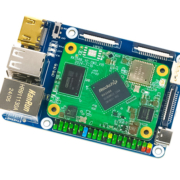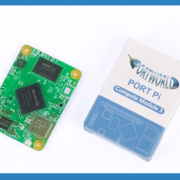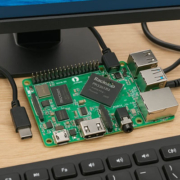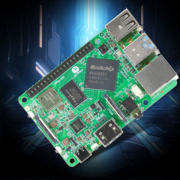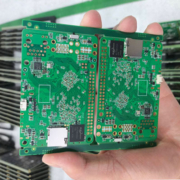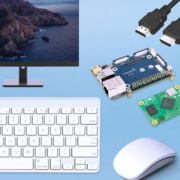Raspberry Pi Compatible Dev Boards
Since its launch in 2012, the Raspberry Pi has become one of the most popular single-board computers (SBC) in the world. Offering an affordable, compact, and flexible platform for DIY enthusiasts, educators, and engineers alike, the Raspberry Pi has inspired a generation of developers to explore the world of embedded systems. However, while the Raspberry Pi is a great tool, sometimes developers need more specialized features, higher performance, or specific interfaces that the Raspberry Pi doesn’t provide. This is where Raspberry Pi Compatible Development Boards come into play.
These boards offer similar functionality and compatibility with the Raspberry Pi ecosystem, making them ideal for projects where you need more processing power, advanced interfaces, or industrial-grade features—all while maintaining ease of use and broad community support.
What Are Raspberry Pi Compatible Dev Boards?
Raspberry Pi-compatible development boards are single-board computers that can run similar software, connect to Raspberry Pi accessories, and interface with the Raspberry Pi’s ecosystem of tools, tutorials, and community libraries. However, these compatible boards often feature enhanced performance, additional connectivity options, and support for a wider range of industrial applications.
Key Features of Raspberry Pi Compatible Dev Boards:
- Raspberry Pi OS Compatibility: Many Raspberry Pi compatible boards can run the same software stack, including Raspberry Pi OS, Ubuntu, and Buildroot.
- GPIO Pin Compatibility: These boards often feature General Purpose Input/Output (GPIO) pins, making them compatible with Raspberry Pi accessories like sensors, displays, motors, and other peripherals.
- Expandable I/O: Some compatible dev boards include additional interfaces like RS232, RS485, CAN, PCIe, or MIPI-CSI, allowing for more complex industrial or IoT applications.
- Broad Support: Full support for third-party libraries, accessories, and communication protocols commonly used in Raspberry Pi projects, such as I2C, SPI, and UART.
Why Choose Raspberry Pi Compatible Dev Boards?
1. Enhanced Performance for Demanding Applications
While the Raspberry Pi is an excellent platform for many projects, it may not offer the raw performance required for more demanding applications. Raspberry Pi-compatible dev boards, such as those powered by Rockchip RK3566/RK3588 or Qualcomm Snapdragon, offer multi-core processors, higher RAM capacity, and GPU support, making them ideal for use cases like AI, machine learning, edge computing, or digital signage.
2. Industrial-Grade Features
Some Raspberry Pi-compatible boards are designed with industrial applications in mind, offering features like:
- Industrial-grade durability: Operate in harsh environments, with support for extended temperature ranges, vibration resistance, and long-life components.
- Enhanced connectivity: Features like PoE (Power over Ethernet), RS485, CAN Bus, and USB 3.0 can provide the reliability and flexibility needed in automation, control systems, or data acquisition applications.
3. Greater Connectivity and Expansion
Raspberry Pi-compatible boards often provide additional connectivity options that aren’t available on standard Pi models, such as:
- Multiple HDMI or Display Ports for multi-monitor setups
- Additional USB Ports for expanded device connections
- More GPIO Pins for controlling more devices simultaneously
- Multiple Ethernet Ports for networked applications and redundancy
- Wi-Fi 6 / Bluetooth 5.0 for advanced wireless connectivity
4. Compatibility with Raspberry Pi Accessories
One of the key advantages of Raspberry Pi-compatible boards is their ability to seamlessly integrate with the Raspberry Pi ecosystem:
- Use Raspberry Pi cases, power supplies, cameras, and displays.
- Leverage the Raspberry Pi Foundation’s official libraries, programming tools, and community support.
- Reuse code, drivers, and software stacks, making transition from Raspberry Pi to a compatible board as easy as possible.
Portworld’s Raspberry Pi Compatible Dev Boards
At Portworld, we offer a selection of Raspberry Pi-compatible development boards designed to meet the needs of advanced projects and applications. Our boards are compatible with the Raspberry Pi ecosystem, while offering enhanced processing power, extended I/O options, and industrial-grade durability.
Our Key Offerings:
-
Portworld RK3566 Dev Board:
- Quad-core Cortex-A55 CPU
- Mali-G52 GPU
- Supports Android, Ubuntu, and Debian
- Dual Gigabit Ethernet with PoE
- RS485, CAN Bus, and GPIO expansion
-
Portworld RK3588 Dev Board:
- Octa-core ARM Cortex-A76/A55 CPU
- 6 TOPS NPU for AI and deep learning applications
- 8K video output and MIPI-CSI camera interface
- Extensive I/O options: USB 3.0, PCIe, SATA, HDMI
- Ideal for edge AI, 4K digital signage, and IoT gateways
These boards are designed to offer easy integration with Raspberry Pi accessories while offering the additional performance and connectivity needed for more complex, industrial-grade applications.
Applications of Raspberry Pi-Compatible Dev Boards
- AI and Machine Learning: Use the enhanced processing power and NPU (Neural Processing Unit) for real-time AI applications, such as facial recognition, object detection, or automated decision-making.
- IoT Solutions: Integrate multiple sensors, control actuators, and run complex software stacks using the extra GPIO pins and industrial communication protocols.
- Digital Signage: Create high-definition digital signage and kiosks that need more processing power, multi-display setups, and extended I/O options.
- Edge Computing: Implement edge AI solutions or process data on-site for time-sensitive applications like industrial automation, smart cities, and autonomous vehicles.

